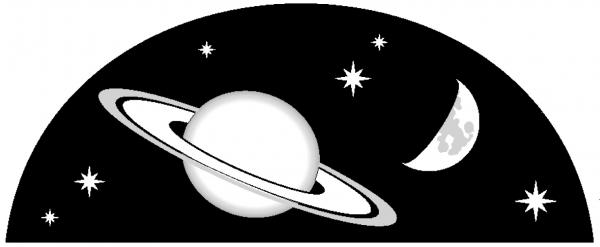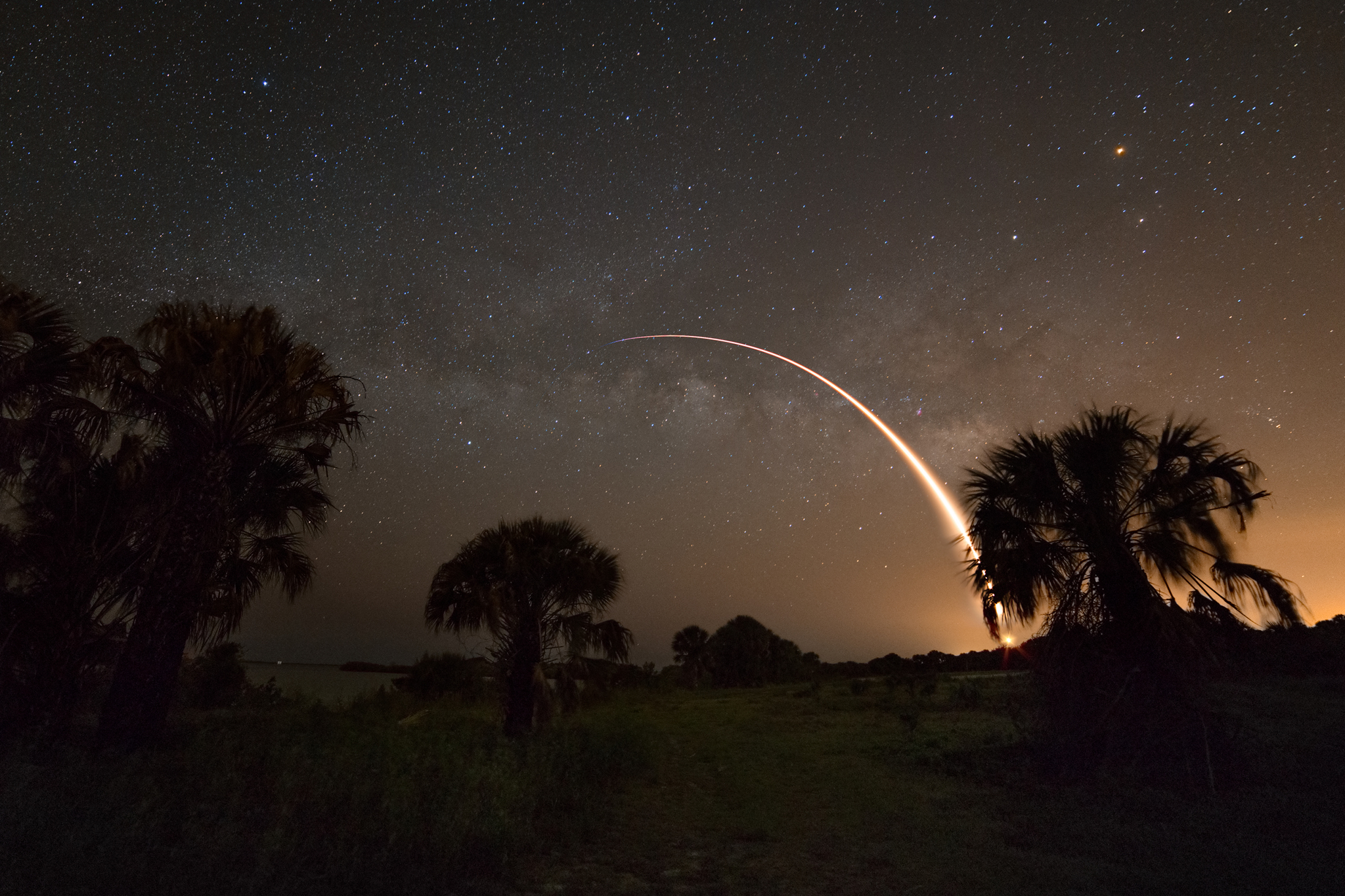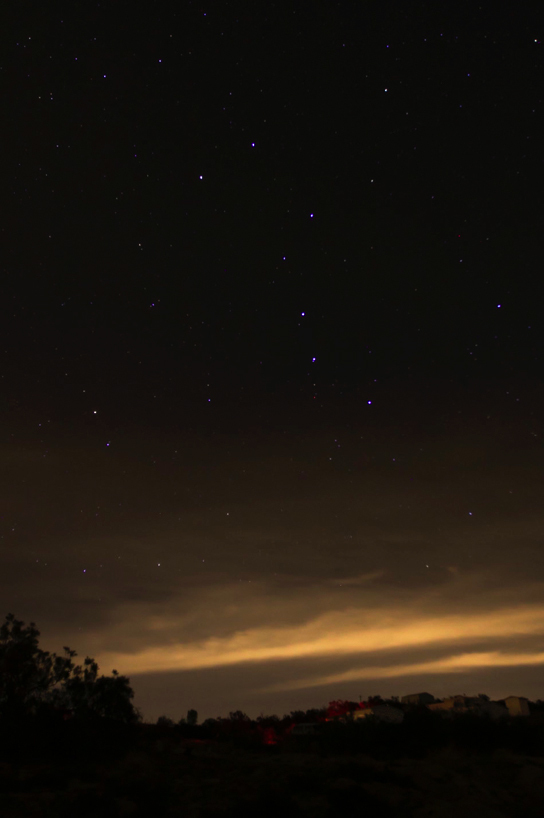Economy
Related: About this forumThe Week End Economists Look to The Stars. May 14 - 15, 2016.
Last edited Sat May 14, 2016, 09:14 AM - Edit history (1)
Yes... Yes... I bet you thought this was going to be another tour through the land of celebrities, but, no it's:
National Astronomy Day
So, rather than a typical WEE visit to the Office of Navel Research, I thought I'd take a peek off-world to the vast beauty of almost nothingness.
Which considering what's going on here on good old earth... What with murderous gun auctions, legislated lookie-loos into nobody's damn bathroom business, and a litany of other Republican atrocities against human decency and mutual respect is probably the only place worth viewing.
Astronomy Day is a grass roots movement designed to share the joy of astronomy with the general population - "Bringing Astronomy to the People." On Astronomy Day, thousands of people who have never looked through a telescope will have an opportunity to see first-hand what has so many amateur and professional astronomers all excited. Astronomy clubs, science museums, observatories, universities, planetariums, laboratories, libraries, and nature centers host special events and activities to acquaint their population with local astronomical resources and facilities. Many of these events are located at non-astronomical sites; shopping malls, parks, urban centers—truly Bringing Astronomy to the People. It is an astronomical PR event that helps highlight ways the general public can get involved with astronomy - or at least get some of their questions about astronomy answered. Astronomy Week encompasses Astronomy Day starting on the previous Monday and ending on the following Sunday.
History
Astronomy Day was born in California in 1973. Doug Berger, then president of the Astronomical Association of Northern California, decided that rather than try to entice people to travel long distances to visit observatory open houses, they would set up telescopes closer to where the people were - busy locations - urban locations like street corners, shopping malls, parks, etc.
His strategy paid off. Not only did Astronomy Day go over with a bang, not only did the public find out about the astronomy club, they found out about future observatory open houses. Since the public got a chance to look through a portable telescope, they were hooked. They wanted to see what went on at the bigger telescopes, so they turned out in droves at the next observatory open house.
Where
Astronomy Day events take place at hundreds of sites across the United States. Internationally England, Canada, New Zealand, Finland, Sweden, the Philippines, Argentina, Malaysia, Iran, Ireland, New Guinea plus many other countries have hosted Astronomy Day activities.
For more information on Astronomy Day, check out the source: The Astro League
and for those of you who sometimes confuse Astrology and Astronomy. (
from the glorious wiki:
"Astronomy, a natural science, is the study of celestial objects (such as stars, galaxies, planets, moons, asteroids, comets and nebulae) and processes (such as supernovae explosions, gamma ray bursts, and cosmic microwave background radiation), the physics, chemistry, and evolution of such objects and processes, and more generally all phenomena that originate outside the atmosphere of Earth. A related but distinct subject, physical cosmology, is concerned with studying the Universe as a whole.
Astronomy is one of the oldest sciences. The early civilizations in recorded history, such as the Babylonians, Greeks, Indians, Egyptians, Nubians, Iranians, Chinese, and Maya performed methodical observations of the night sky. Historically, astronomy has included disciplines as diverse as astrometry, celestial navigation, observational astronomy and the making of calendars, but professional astronomy is nowadays often considered to be synonymous with astrophysics.
During the 20th century, the field of professional astronomy split into observational and theoretical branches. Observational astronomy is focused on acquiring data from observations of astronomical objects, which is then analyzed using basic principles of physics. Theoretical astronomy is oriented toward the development of computer or analytical models to describe astronomical objects and phenomena. The two fields complement each other, with theoretical astronomy seeking to explain the observational results and observations being used to confirm theoretical results.
Astronomy is one of the few sciences where amateurs can still play an active role, especially in the discovery and observation of transient phenomena. Amateur astronomers have made and contributed to many important astronomical discoveries."
So... Much... more... here: https://en.wikipedia.org/wiki/Astronomy
I'm off and hopefully, if I find any other living thing out there, they won't hold it against me that I'm from Earth.
Oh, and uh... A helpful hint to certain elected officials out there, to see Uranus, you look UP! Idiots.
| 2 votes, 0 passes | Time left: Unlimited | |
| What's your sign, baby? | |
1 (50%) |
|
| It's FLAT! | |
0 (0%) |
|
| Space, the final frontier! | |
1 (50%) |
|
| Use the Force. | |
0 (0%) |
|
| I like pancakes. | |
0 (0%) |
|
| I like pie. | |
0 (0%) |
|
| 0 DU members did not wish to select any of the options provided. | |
| Show usernames
Disclaimer: This is an Internet poll |
|
I'm going to see a musical comedy tonight called "Urinetown". I guess it's about politicians who force people to use pay toilets, and it's illegal to go anywhere else.
As for "what's your sign, baby"? 64 today. What better place to spend it than Urinetown.
Hugin
(37,622 posts)I hadn't heard of Urinetown. Interesting. If I recall they tried that in a town I once lived in, but, after a group of citizens turned the City Hall into an outdoor urinal. The policy was dismantled.
Fuddnik
(8,846 posts)Ran for like 1,000 performances.
We've got a small local theater here, that puts on some good performances. The last one we went to was Spamalot.
Gungnir
(242 posts)So much fun!
http://cosmoquest.org/
Gungnir
(242 posts)Meet our Podcasters!
Alice’s AstroInfo
Ask A Spaceman
Astronomy Cast
Awesome Astronomy
Cheap Astronomy
Cosmic Perspective
Cultural Astronomy
Folklore
Globe at Night
Google Lunar XPRIZE
Inspiring Science Education
Learning Space
NOAO
Observing With Webb
Q&A
Realspace
Shaila’s SpaceCast
Space Scoop
The Apogee Podcast
Weekly Space Hangout
Gungnir
(242 posts)A feast for the eyes, mind, and tastebuds:
Learning Space Ep. 47 - Geology with CUPCAKES - HD
Gungnir
(242 posts)Gungnir
(242 posts)Gungnir
(242 posts)Gungnir
(242 posts)Do more in space exploration.
The Planetary Society finds fun ways to get involved. Get active and volunteer, attend space events in your local area, participate in space-related contests, and help spread the adventure of space with the next generation.
Political Advocacy
The Planetary Society is organizing a new space constituency that is educated, empowered, and loud. Join us as a member of the Society or sign up to be notified about the latest Advocacy alerts and news.
more
Gungnir
(242 posts)Key Science Projects
https://science.nrao.edu/science/key-science-projects
- BeSSeL Survey (Bar and Spiral Structure Legacy Survey)
- Grain Growth and Sub-structure in Proto-planetary Disks
- The Megamaser Cosmology Project
- Monitoring Of Jets in Active galactic nuclei with VLBA Experiments (MOJAVE)
- Towards a Resolution of the Pleiades Distance Controversy
- Detecting nHz Gravitational Radiation using a Pulsar Timing Array
Gungnir
(242 posts)Gungnir
(242 posts)Webb space telescope (replacement to Hubble) to launch in 2018
http://jwst.nasa.gov/faqLite.html
Gungnir
(242 posts)Why Every Dollar Spent on NASA Adds $10 to the Economy
A report by the Space Foundation estimated that the space-related activities contributed $180 billion to the economy in 2005. More than 60% of this came from commercial goods and services created by companies related to space technology. The space economy includes commercial space products and services, as well as commercial infrastructure and support industries. It also includes US government space budgets outside of NASA, such as Department of Defense, National Reconnaissance Office, National Oceanic and Atmospheric Administration, Department of Energy, Federal Aviation Administration, National Science Foundation, Federal Communications Commission, and United States Geological Survey. It also counts non-US government space budgets. That means that each dollar of NASA spending is a catalyst for $10 of economic benefit.
That's because NASA is in a unique position to provide some of the technological innovation that drives the space economy. This created many of the goods and services we take for granted every day:
Heart defibrillators
GPS, which was developed by the Air Force for military applications
Weather and communication satellites
ATM, which provide an immediate electronic response via satellite.
Other technologies developed for exploring space are now used to increase crop yields or search for good fishing regions.
A 2002 study by Professor H.R. Hertzfeld of George Washington University showed there is a significant return to the companies work with NASA on its research contracts. These companies can commercialize the products developed and market them. The 15 companies studied received $1.5 billion in benefits from a NASA R&D investment of $64 million.
more
Gungnir
(242 posts)Gungnir
(242 posts)Physicists and astronomers from the University of Texas at Arlington have used advanced astronomical software to accurately date lyric poet Sappho's "Midnight Poem," which describes the night sky over Greece more than 2,500 years ago.
The scientists described their research in the article "Seasonal dating of Sappho's 'Midnight Poem' revisited," published today in the Journal of Astronomical History and Heritage. Martin George, former president of the International Planetarium Society, now at the National Astronomical Research Institute of Thailand, also participated in the work.
"This is an example of where the scientific community can make a contribution to knowledge described in important ancient texts, " said Manfred Cuntz, physics professor and lead author of the study. "Estimations had been made for the timing of this poem in the past, but we were able to scientifically confirm the season that corresponds to her specific descriptions of the night sky in the year 570 B.C."
Sappho's "Midnight Poem" describes a star cluster known as the Pleiades having set at around midnight, when supposedly observed by her from the Greek island of Lesbos.
Read more at: http://phys.org/news/2016-05-scientists-planetarium-advanced-astronomical-software.html#jCp
Gungnir
(242 posts)The life stories of the stars above, as told through the beauty, grace, and power of contemporary dance! Song of the Stars features performances by Seven Dance Company under the artistic direction of Cassia Cramer, woven together with a narration by astrophysicist Paul Sutter. In this original fusion of science and dance, you will travel through the vast cosmos, witnessing the first stars sparking a revolution from total darkness, the fatal love of two galaxies, a cataclysmic death that brings hope to a new generation, and so much more.
Our Kickstarter campaign has successfully gathered support for the shooting and editing of the live premiere by Over the Sun Productions, with intent to distribute a professionally produced film to a variety of channels, including national broadcasters.
Individual pieces will also be filmed using specialized 360-degree cameras by Infinite Impact Studios, creating a unique and groundbreaking immersive virtual reality experience. With this footage a planetarium film will be produced by for distribution to thousands of planetariums worldwide, reaching a potential audience of millions.
Production is led by Active Galaxy Productions, a company specializing in bringing science education to new audiences, with artistic direction by Seven Dance Company, a 501(3)(c) nonprofit dedicated to tying local communities together through world-class dancing. The performance premiered on April 21st, 2016 at the Capitol Theater in Columbus, followed by performances at select schools.
As a part of this production we are also preparing educational supplements, including classroom science guides and student residencies at Seven Dance Company.





